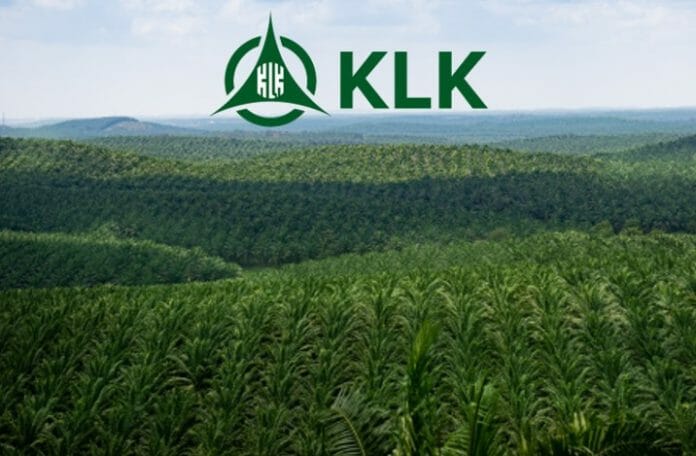Kuala Lumpur Kepong Bhd (KLK) has completed the acquisition of the plantation assets from its parent company, which Kenanga Research reckons should still be marginally accretive.
“Additional disclosures revealed a sharper-than-expected year-on-year (YoY) drop in the latest financial year versus our estimate. However, given the unit’s past profits, we expect its earnings to normalise in FY24-25.
“Overall, we welcome the consolidation of all its parent’s upstream plantation assets under KK, the purchase should still be marginally accretive (to increase by 1%),” it said in its Company Update today (Dec 20).
The research house maintains its OUTPERFORM call, its FY24-25F earnings forecasts and TP of RM24.50, based on 15x FY24F CEPS.
KLK had announced on Dec 14 the plan to acquire two estates from its parent, Batu Kawan Bhd (BKB).
Since then, KLK has acquired the assets from Whitmore Holdings Sdn Bhd (WHSB) for RM277 million in cash. KLK is a 48% subsidiary of BKB while WHSB is 100% owned by BKB.
Kenanga noted that the two estates acquired are located at Berau, East Kalimantan and are held by two subsidiaries.
The first one is PT Satu Sembilan Delapan (SSD) which owns 5,676 hectared, of which 5,384 hectares has been planted while the other PT Tekukur Indah (TI) which holds 1,497 hectares of land, with 987 hectares planted up.
It said SSD is RSPO-certified; the palm trees are at their prime, at around 9-16 years of age, and it operates a 60MT per hour palm oil mill.
“In its annual reports, BKB had disclosed SSD’s PBT of RM29 million in FY21 and RM34 million in FY22. However, KLK revealed a much lower FY23 net profit of only RM6 million for SSD versus our net profit estimate of RM20 million on an expected PBT of RM28 million for SSD.”
“The sharper-than-expected YoY drop between FY22 and FY23 is not clear but barring any unusual charges or profits and we expect FY24-25F net profit to normalise closer to RM20 million,” it said.
Meanwhile, Kenanga had noted for the other subsidiary, TI, their trees are still immature, just 1 to 2 years old and it is loss making.
“KLK also revealed TI made a net loss of RM700,000 in FY23 versus our estimated net loss of RM1m. Moving forward, FY24-25F losses should shrink as the palm trees will start bearing fruit from year 3 onwards,” it said.
The research house noted that KLK, besides disclosing the FY23 results for SSD and TI, also revealed their respective net assets of RM80 million and RM9 million, after adjusting out minorities.
“As such, based on SSD and TI’s latest FY23 results, the historic acquisition price-to-earnings ratio (PER) and price-to-book-value (PBV) would have been 55x and 3.1x compared to the sector’s 1-year forward PER of 20x and PBV of 1.1x.
“Nevertheless, given SSD’s better profits in the past and TI’s trees coming into maturity from FY24 onwards, we expect their combined net profit of RM19 to 21 million for FY24-25F or PER of 13-15x.
“As for the high acquisition PBV, it is not uncommon for younger estates to have low net assets due to high borrowings coupled with losses in the first few years of planting,” it said.
Kenanga said using Knight Frank’s valuation of the two assets of RM329 million (after deduction of minorities) less RM87 million of debts is still 1.1x (our earlier estimate was 1.2x) versus KLK’s 1.5x PBV.
“Earnings-wise, KLK is still expected to enjoy a slight uplift, around less than 1% in core net profit, as it plans to use part of its RM2.5 billion cash holding to pay for the entire consideration,” it added.









